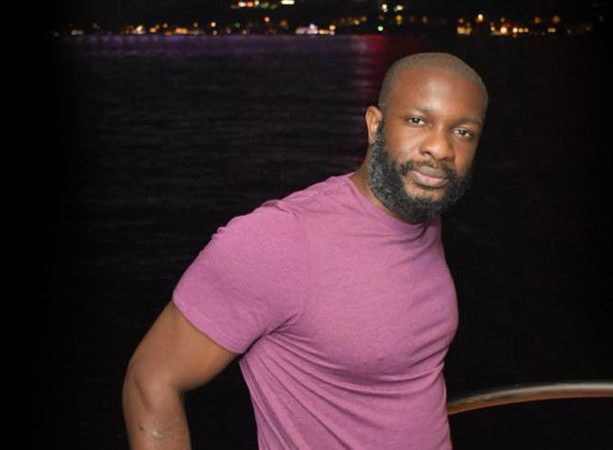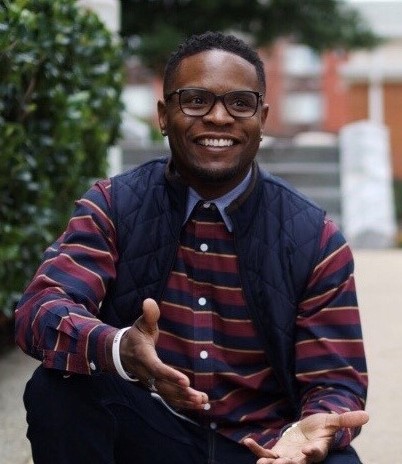Depending on the city you live in, GPS is the most clutch piece of technology you can have. From getting to a new restaurant, avoiding traffic or finding the fastest travel option, it ensures people can get from where they are to where they desire to be. A major part of this technology’s success is the option to choose from multiple routes. Regardless of the situation, there’s more than one way to get there — and navigating life can be the exact same way.
Most people subscribe to very specific paths to success. While there’s nothing wrong with traditional routes, life has a way of creating detours. The teams at Meta understand that life can have unexpected shifts, and they welcome people from different education and career backgrounds to join them. The pathway programs at Meta, for example, are designed to build diverse teams where everyone is valued.
One of the company’s offerings is a rotational engineering program, which is designed to help programmers and software engineers elevate their skills. Additional programs include a 16-week immersive program for those who’ve been out of the workforce for two years or more, and an internship program that provides access to career development tools for individuals from underrepresented communities.
Recently, AfroTech had the opportunity to learn about Kalu Eme Kalu. He’s a software engineer at Meta whose pivot into the tech world was supported by the company’s rotational engineering pathway program.
Balancing the Scales
Like many, Kalu had big dreams of securing a well-respected job and earning a sizable income. He approached law school with this perspective and was ready to advance his future. But this dream would soon shift. When Kalu’s brother created a predictive model to weigh his possible salary against the opportunity costs of attending law school, the math didn’t quite add up in the ways Kalu had imagined.
In the meantime, Kalu started a blog that explored how to use research to make decisions as an alternative to the non-peer-reviewed methods most judges use. This research, along with his brother’s analysis, made Kalu realize that a career in law likely wasn’t the most rational decision for him.
“I decided to go to law school before I had been equipped with the tools necessary to evaluate rational decision-making and while being mostly unaware of other competing options,” says Kalu.
During one summer of law school, Kalu took an internship at a social media organization. There, he was exposed to career options with salaries that could provide a greater level of security for him and his family. This was the moment he knew he needed to shift into tech. Though his path was nontraditional, Kalu fully embraced the challenge and didn’t allow any barriers to stop him from pursuing this career path.
Support in Action
Kalu was fully invested in his career pivot, which led him to pursue opportunities at Meta. From the interview process, he knew it could be a place that not only supported him professionally but also cared about him personally.
“During my interview prep, my father passed away. The recruiter was very accommodating, deferring my interview until I came back from the burial in Nigeria,” explains Kalu. Blown away by the empathetic nature of the people he encountered during the interview process, Kalu was more than excited about the opportunity to join the team.
He was initially hired as a part of the company’s rotational engineering program. Because most of his technical experience was derived in China, many companies didn’t know how to accurately place his skill set, making it hard for him to be appropriately leveled. Being employed with Meta was the game-changer. During the rotational engineering program, individuals are placed on a one-year contract to prove their skill set and fit within the organization. After just six months, Kalu was able to show why taking a chance on him was the right decision.
Investing in talent is not a foreign concept at Meta — it’s a part of the organizational culture. Team members are encouraged to take classes to hone their skills, explore new projects and take advantage of resources that will build their overall professional toolbox.
A Place for Everyone
The people at Meta are dedicated to building a culture of openness and inclusivity. For Kalu, he’s most inspired by the company’s nonjudgmental culture. This is translated in the acceptance of people for their humanity and the way leadership supports team members’ future growth and development. This provides a space for everyone to show up as their best selves. Currently, Kalu is using this supportive culture to build out a tool that will help protect users from harmful and misleading content.
He’s proud of the strides he’s made and sees his work as a means to open more doors for other people of color and those who may have taken a nontraditional route. “It can be a large burden, but when I look at leaders of color within the company, I’m extremely grateful that they bore the burden of having to ‘overcompensate’ so that I can walk through the doors they opened,” Kalu points out.
Kalu’s journey was unconventional, but that’s where the beauty lies. He was able to pivot into an industry that met his goals and exceeded his expectations. With the support of his team members at Meta, his story is an inspiration to anyone on a similar trajectory. His advice to them? “Know that you belong.”
Click here to learn more about the pathway programs at Meta.
This editorial is brought to you in partnership with Meta.


